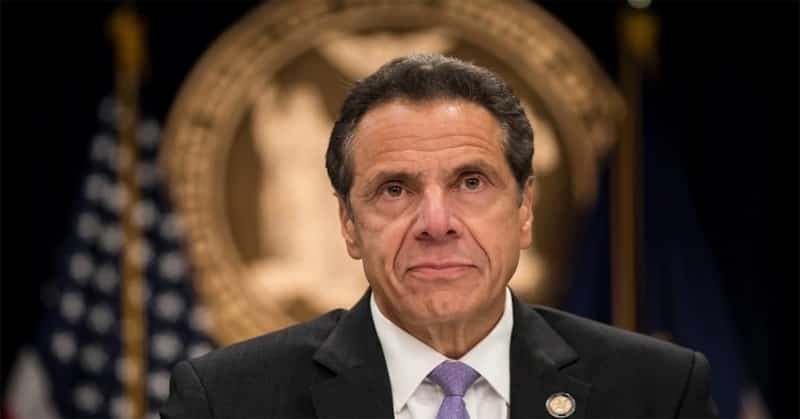The overnight excitement about Governor Andrew Cuomo’s about-face on mobile and online sports betting was short-lived. As we found out more about Cuomo’s plans during his press conference on Tuesday, it seems as though he and other like-minded New York politicians are hellbent on continuing to hold the state back on the sports betting front.
Cuomo’s statements on Tuesday centered around the idea that the New York State Lottery would be in charge of the licensing and the governance of expanded sports betting. A free market has proven to be the best option, one that has been controlled by the state’s casino commission or an oversight committee.
That’s not to say that an expansion of sports betting in New York to include mobile and online wagering cannot work. It seems to be working just fine in Tennessee, but that is also a state with no brick-and-mortar gaming facilities, so there weren’t a whole lot of other options. Perhaps most importantly, there weren’t many other professional or tribal business interests.
In the state of New York, there are four commercial casinos and more than a handful of tribal gaming facilities, including, but not limited to places like Turning Stone in Verona and the Seneca Nation casinos in Buffalo, Niagara Falls, and Salamanca. The lottery would have to contend with those interests, while also handling the commercial casinos.
Tennessee and West Virginia are the two exceptions as states with sports betting run by the state lottery. They have adopted a market-friendly approach wherein competition and a number of licensees allow things to run smoothly. If Cuomo wants to pursue a scenario in which the lottery runs sports betting, these are the two states that he and his advisors need to study closely.
There is hope and optimism that Virginia, a state set to launch shortly, will do it the right way through the lottery. Virginia also had no casinos until a November vote allowed for four casinos to be built. There are already longstanding gaming interests in New York that are likely to cloud the waters.
Oregon, Rhode Island, New Hampshire, and Washington D.C. are also lottery-run with mobile betting and those are viewed as a failure. New Hampshire is a state that only offers DraftKings Sportsbook, so there is a monopoly. Montana is retail-only, but also run through the lottery. Oregon and Washington D.C. are run directly through the lottery and not any sort of third party. They have predatory lines, reliability issues, and are generally seen as bad for the industry.
If done correctly in New York, a lottery-run expansion of sports betting could work out, but there is a lot more skepticism and pessimism than confidence and optimism from industry observers. Frankly, that would be our position here at ATS as of now, given how poorly other states in the northeast have done going the lottery route. The creation of monopolies helps the lucky operator or small number of operators that get to set up shop, but it is bad for the consumer in a lot of ways.
We expect that Cuomo will clarify more next week, as was originally promised. The late-night announcement that he may be in favor of an expansion of gaming to include mobile and online sports betting did deserve a follow-up, but his Tuesday morning press conference did very little to show the growth that we were all hoping for in his philosophy.
So now we wait and watch. We wait and see if the negative returns from the betting community, including the lobbyists and operators, have any bearing on how Cuomo wants to play this. Any expansion of betting is good for New York, but any type of restrictive environment is counterproductive to his hopes of getting the state out of its severe COVID-19 shortfall in a reasonable period of time.
Perhaps the Empire State ends up doing it the right way, but between Cuomo’s previous reluctance and the new evidence of how sports betting will be run, we’ll continue to monitor the situation and hope for the best.




